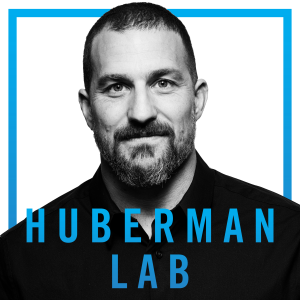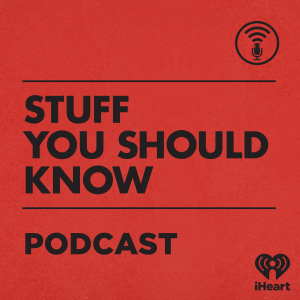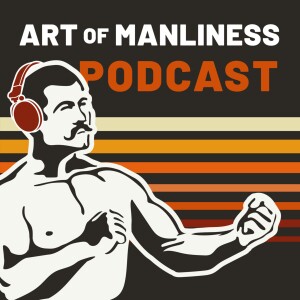During World War II, Henry Beecher, an anesthesiologist serving in the U.S. Army, noticed that 32% of the soldiers he treated for horrific battle wounds felt no pain. A further 44% experienced only slight or mild discomfort, despite the fact they had shrapnel embedded in their bodies. Beecher hypothesized that the euphoria of surviving battle resulted in the release of a natural painkiller. When morphine was running low in Europe, Beecher thought he could harness the mind’s seeming ability to produce natural painkillers in a different way by injecting soldiers who were about to undergo surgery with a simple saline solution, while telling the soldiers they were receiving morphine. About 90% of these patients underwent the surgery with little or no pain.
Beecher’s field-expedient placebo treatments would go on to open up decades of research into the power of our expectations. On today’s show, my guest will walk us through that fascinating research, and how the connection between the body and the mind is a lot stronger and wilder than we know.
His name is David Robson and he’s an award-winning science writer and the author of The Expectation Effect: How Your Mindset Can Change Your World. David and I begin our conversation with how and why the brain operates as a prediction machine, and how the expectations it generates can shape the reality we experience. We then discuss how even when someone’s pain or condition is very real, the placebo effect can have an equally real effect on their physiology — even when people know they’re taking a placebo. We also get into the “nocebo effect,” where your expectation that a drug will have negative side effects, in fact produces those side effects. From there we turn to how the expectation effect has powerful results beyond the medical world, and shows up in the areas of sleep, diet, and fitness, including how thinking of doing chores as exercise actually increases the health benefits of that activity, how reframing your anxiety can turn it into a performance-enhancing boost, and how your perception of getting older hugely affects how you will actually physically and mentally age.
Resources Related to the Podcast- Some of the studies mentioned in the show:
- Open-label placebo treatment in chronic low back pain
- Conditioning open-label placebo: a pilot pharmacobehavioral approach for opioid dose reduction and pain control
- Mind-set matters: exercise and the placebo effect
- Longevity increased by positive self-perceptions of aging
- AoM Podcast #661: Get Better Sleep by Stressing About It Less
- AoM Article: Reframe for Resilience
- David’s Website
- David on Twitter
More Episodes
Leadership Lessons from a Disastrous Arctic Expedition
 2023-02-15
2023-02-15
Jane Austen for Dudes
 2023-02-13
2023-02-13
Get a Handle on Your Shrinking Attention Span
 2023-02-08
2023-02-08
The Survival Myths That Can Get You Killed
 2023-02-06
2023-02-06
Escape the Happiness Trap
 2023-02-01
2023-02-01
Dante's Guide to Navigating a Spiritual Journey
 2023-01-30
2023-01-30
Move the Body, Heal the Mind
 2023-01-25
2023-01-25
Kit Carson's Epic Exploits
 2023-01-23
2023-01-23
How to Win Friends and Influence People in the 21st Century
 2023-01-19
2023-01-19
Advice on Achieving Any Long-Haul Dream
 2023-01-16
2023-01-16
Key Insights From the Longest Study on Happiness
 2023-01-11
2023-01-11
Heal the Body With Extended Fasting
 2023-01-09
2023-01-09
7 Journaling Techniques That Can Change Your Life
 2023-01-04
2023-01-04
Get Fit, Not Fried — The Benefits of Zone 2 Cardio
 2023-01-02
2023-01-02
Why You Don’t Change (But How You Still Can) [ENCORE]
 2022-12-28
2022-12-28
How Testosterone Makes Men, Men [Encore]
 2022-12-26
2022-12-26
The Unexpected Origins of Our Christmas Traditions
 2022-12-21
2022-12-21
The Affectionate, Ambiguous, and Surprisingly Ambivalent Relationship Between Siblings
 2022-12-19
2022-12-19
Why Homer Matters
 2022-12-14
2022-12-14
Befriending Winter
 2022-12-12
2022-12-12
Create your
podcast in
minutes
- Full-featured podcast site
- Unlimited storage and bandwidth
- Comprehensive podcast stats
- Distribute to Apple Podcasts, Spotify, and more
- Make money with your podcast
It is Free
You may also like

Huberman Lab


Stuff You Should Know


The Ben Shapiro Show


- Privacy Policy
- Cookie Policy
- Terms of Use
- Consent Preferences
- Copyright © 2015-2024 Podbean.com



 iOS
iOS Android
Android